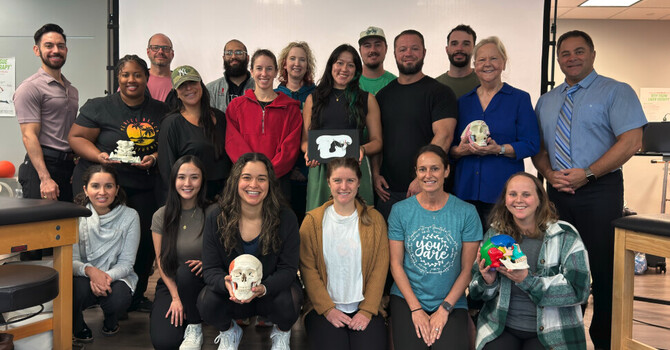Introduction to TMJ Disorders
The temporomandibular joint (TMJ) is one of the most complex joints in the body, playing a critical role in daily activities like eating, speaking, and even expressing emotions. This hinge-like joint, located on each side of the head where the jawbone meets the skull, facilitates the smooth movement of the jaw. When this joint malfunctions, it can lead to discomfort, reduced mobility, and significant disruptions in day-to-day life. TMJ disorders, or TMD (temporomandibular disorders), encompass a range of conditions that impact the joint, the muscles controlling it, or both. This guide will explore the underlying causes of TMJ disorders, the symptoms they present, and how chiropractic care can support those experiencing jaw discomfort.
What Are TMJ Disorders?
TMJ disorders refer to a collection of conditions affecting the joint, muscles, or both, impairing their ability to function correctly. Unlike other joint conditions, TMJ disorders are often multifactorial, making them challenging to diagnose and manage. According to research, TMJ disorders affect millions of people worldwide, with women in their reproductive years being particularly susceptible. These disorders can be temporary or chronic, with varying degrees of severity. While some individuals experience mild discomfort, others may find it difficult to perform basic tasks like chewing or speaking.
Common Causes of TMJ Disorders
TMJ disorders often develop from a combination of physical, emotional, and environmental factors. Jaw injuries, for instance, are a frequent culprit. Traumas such as falls, sports injuries, or car accidents can disrupt the alignment of the joint or damage surrounding tissues. Over time, this misalignment can lead to chronic discomfort and reduced functionality.
Teeth grinding and clenching, a condition known as bruxism, is another significant contributor. Often triggered by stress or sleep disorders, bruxism places undue pressure on the TMJ and can wear down the cartilage, resulting in pain and stiffness. Similarly, arthritis, particularly osteoarthritis or rheumatoid arthritis, can affect the TMJ by causing inflammation or degenerative changes in the cartilage and joint tissues.
Stress is also a well-recognized factor in TMJ disorders. Emotional stress often manifests physically, leading to muscle tension in the jaw, neck, and shoulders. This tension can create a cycle of discomfort, exacerbating TMJ symptoms over time. Finally, poor posture, especially in individuals who frequently look down at screens, can alter the alignment of the head and neck. This misalignment often translates to additional strain on the TMJ, contributing to its dysfunction.
Recognizing the Symptoms of TMJ Disorders
Symptoms of TMJ disorders vary widely among individuals, but pain and discomfort are common denominators. Many people experience localized pain in the jaw area, which may radiate to the cheeks, ears, or even the neck and shoulders. This discomfort can range from mild to severe and may worsen with activities like chewing, talking, or yawning.
Another common symptom is a clicking or popping sound when opening or closing the mouth. This audible indicator often points to joint misalignment or damage to the cartilage within the joint. Some individuals may notice that their jaw feels stuck or locked in certain positions, making it difficult to open or close their mouths fully. This restricted movement is not only frustrating but can also interfere with daily tasks.
Ear-related symptoms, such as earaches or ringing in the ears (tinnitus), are also frequently associated with TMJ disorders. These issues arise because the TMJ is located near the ear canal, and inflammation or misalignment can affect nearby structures. Chronic headaches, often mistaken for tension or migraine headaches, can also be linked to TMJ disorders due to the strain placed on facial and neck muscles.
Diagnosing TMJ Disorders
Diagnosing TMJ disorders requires a multi-faceted approach, as their symptoms often overlap with other conditions. A healthcare professional typically begins with a thorough physical examination, assessing jaw movement, tenderness, and any clicking or popping sounds. Imaging tests, such as X-rays, MRIs, or CT scans, may be recommended to obtain a detailed view of the joint’s structure and identify abnormalities. Collaboration with dental and medical specialists may also be necessary to rule out other potential causes of symptoms, such as dental issues or ear infections.
Conventional Approaches to TMJ Disorders
The management of TMJ disorders often involves a combination of treatments tailored to the individual’s needs. Medications are commonly prescribed to reduce pain and inflammation. Nonsteroidal anti-inflammatory drugs (NSAIDs) can alleviate mild discomfort, while muscle relaxants may be recommended for those with significant jaw tension.
Dental appliances, such as splints or mouthguards, are another frequently used treatment. These devices help reduce pressure on the TMJ by preventing teeth grinding or clenching, particularly during sleep. In some cases, physical therapy may be employed to strengthen the muscles around the joint and improve mobility. Therapists often teach specific exercises, such as gentle jaw stretches, that can enhance flexibility and reduce stiffness.
Stress management techniques are also integral to TMJ treatment. Individuals who experience heightened jaw tension due to stress may benefit from mindfulness practices, such as meditation or yoga. For severe cases, surgical intervention may be considered, but this is typically reserved for situations where other treatments have failed to provide relief.
Chiropractic Care for TMJ Disorders
Chiropractic care offers a holistic approach to managing TMJ discomfort, addressing not just the symptoms but also the underlying causes. Chiropractors focus on the alignment and function of the musculoskeletal system, which can significantly impact the jaw joint. At Chiro 4 All Health Center, chiropractors utilize targeted techniques to reduce strain on the TMJ and surrounding structures.
One such technique involves spinal adjustments. Misalignments in the cervical spine can contribute to jaw tension and dysfunction, and correcting these misalignments often alleviates associated symptoms. Chiropractors may also perform gentle manipulations of the TMJ itself, improving its alignment and mobility. Soft tissue therapy, which targets the muscles and ligaments around the joint, can further reduce tension and promote relaxation.
Posture correction is another critical aspect of chiropractic care. Poor posture, particularly forward head posture, places additional strain on the TMJ. By addressing these postural imbalances, chiropractors help patients achieve long-term relief. Many individuals find chiropractic care appealing because it is non-invasive and drug-free, focusing on improving overall wellness.
Self-Care and Lifestyle Modifications for TMJ Disorders
In addition to professional care, self-care strategies play a vital role in managing TMJ disorders. Stress management is particularly important, as stress often exacerbates symptoms. Techniques such as deep breathing exercises, progressive muscle relaxation, and mindfulness can help reduce jaw tension and improve overall well-being.
Dietary modifications may also be beneficial. Individuals with TMJ disorders are often advised to avoid hard, chewy, or crunchy foods that place excessive strain on the jaw. Instead, a soft diet consisting of foods like yogurt, mashed potatoes, and smoothies can provide necessary nutrition without exacerbating symptoms.
Heat and ice therapy is another effective self-care technique. Applying a warm compress to the jaw can relax tight muscles, while an ice pack can reduce inflammation and numb pain. Alternating between heat and ice can be particularly helpful for managing acute symptoms.
For those with limited jaw mobility, gentle exercises can improve function over time. A common exercise involves placing the tongue on the roof of the mouth while slowly opening and closing the jaw. This motion helps strengthen the jaw muscles and increase flexibility without causing strain.
Preventing TMJ Disorders
Preventing TMJ disorders involves adopting habits that promote overall joint health. Maintaining good posture is essential, as poor alignment can place undue stress on the TMJ. Simple adjustments, such as keeping screens at eye level and sitting upright, can make a significant difference over time.
Regular dental check-ups are also important, as dental issues like misaligned teeth or bruxism can contribute to TMJ disorders. Dentists can identify these problems early and recommend interventions, such as braces or night guards, to prevent further complications.
Becoming aware of jaw clenching or grinding habits is another preventive measure. Many people clench their jaws subconsciously during stressful situations or while concentrating. By recognizing this habit and making a conscious effort to relax the jaw, individuals can reduce strain on the TMJ.
FAQ: Addressing Common Questions About TMJ Disorders
Can TMJ disorders resolve without treatment?
In some cases, mild TMJ symptoms may improve with self-care and time. However, persistent discomfort often requires professional intervention to address underlying causes.
Are TMJ disorders permanent?
TMJ disorders are not necessarily permanent. With appropriate care, many individuals experience significant relief and restored function.
Is chiropractic care suitable for everyone with TMJ disorders?
Chiropractic care is a viable option for many individuals, but it’s important to consult a qualified provider to determine if it aligns with your specific needs.
At Chiro 4 All Health Center, chiropractic care is tailored to each patient’s unique circumstances, ensuring a personalized approach to TMJ management. Whether addressing posture, muscle tension, or joint misalignment, chiropractors provide holistic support for those experiencing jaw discomfort.
Managing TMJ disorders involves a combination of professional care, self-care, and lifestyle adjustments. With the right strategies, individuals can achieve improved function and reduced discomfort, enhancing their overall quality of life. For those seeking non-invasive support, Chiro 4 All Health Center offers comprehensive chiropractic solutions tailored to their needs.
If you’re ready to take the next step toward lasting relief, Dr. Tyler Flores DC at Chiro 4 All Health Center is here to help. Visit our website, check out our Google My Business page, or Contact us directly through our contact page to schedule a consultation and get personalized care tailored to your needs. Don’t wait—start your journey to better jaw health today!The content in this blog is for informational purposes only and is not a substitute for professional medical advice, diagnosis, or treatment. Always consult your doctor or a qualified healthcare provider before trying new healthcare protocols.

Tyler Flores
Contact Me



